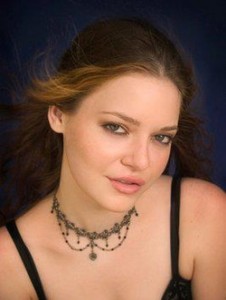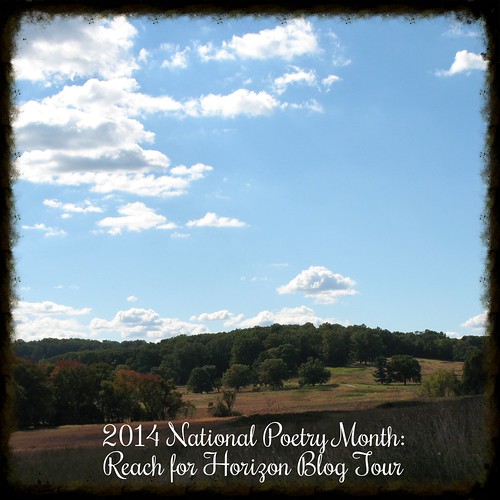Emma Eden Ramos is a poet, middle-grade, and young adult novelist, and I’ve featured her a few times on the blog. We’re Internet buddies who have a “poking” war from time to time, and we talk poetry and books all the time. Check out my reviews of Still, At Your Door, The Realm of the Lost, and Three Women: A Poetic Triptych and Selected Poems. Check out the interviews, and her guest interview.

be careful with a woman like me by Brooke Elise Axtell be careful with a woman like me who lives like a drunkard for the grey honey of the sea who sends her singing voice to distant coves like a hurricane trapped in a green bottle just to see if shrouds can be ripped & the dead raised. be careful with a woman like me who sharpens her heart like an ivory dagger & howls her monsoon music to the moon who wraps her secrets in silver cloths to hide beneath deck & makes no promises who is a cloud no hammer can nail to the bed who will keep you restless & well fed on blackberries. be careful with a woman like me who dances in with a brass band then slips away like a line in the sand when the slightest wind moves. it is not that i can't be true. it is not that you are a red lacquered door to open & quickly pass through. but what appears to be a delicate locket hanging from a gold chain at my neck holds a private tempest & the shipwreck of every storm-torn night my skin eats. be careful of a woman like me. i am true the way rain is true. i am pure & vanishing. when the thirst of brittle leaves is quenched when the land is a screaming emerald it is clear. i am no longer here. i am as restless as a sloop at bay, swaying with the seducing wave & her dark granite gaze. i secretly flunked the school of manners though i held my spoon at such a graceful angle. i disguised my dissent behind the careful lifting of the teacup & memorized the map of their make believe. i breathed heavy in the bed of my enemy so i could overturn the twist of the sordid fist. i oiled the gears of my mind like a pleasing machine. you should be careful with a woman like me. all the while i trained in guerilla warfare chewed rabbit stew, sank my teeth into the neck of a god who does not topple at the earthquake of the shrine. i crossed seven purple mountains on my knees. i sucked on stones until they turned to bread. i gave my heart to a hungry harlot to eat for breakfast & you will find only the grey honey of the sea rocking, rocking in a woman like me.
Emma: The ability to write isn’t always all inclusive. Someone who composes beautiful prose may find that they’re completely hopeless when it comes to writing verse. You, however, are an award winning poet and short story writer. What, for you, is the link that makes both mediums accessible?
Brooke: I start with an initial instinct, a visceral energy that inevitably gives way to a particular form. When I begin writing I know that there is an underlying architecture that will reveal itself, but the line between verse and story in not absolute. Hybrid forms fascinate me. The intersection of text, song, performance and story yields such a rich alchemy. Lately, I’ve been intrigued by journalism as a site of beautiful protest.When you watch the boundaries between genres breed and dissolve, you begin to feel that every form is open to you.
Emma: You are also a very well-established singer/songwriter. You’ve worked with artists such as Terry Bozzio (of Missing Persons and Frank Zappa), Charlie Sexton (guitarist for Bob Dylan), Mitch Watkins (guitarist for Leonard Cohen), and a number of other great musicians. How do you find the collaborative process?
Brooke: It is an incredible honor to collaborate with such powerful musicians. I grew up dancing with a professional ballet company, so I approach the songwriting process as both a poet and a dancer. Music connects language and movement in a way that is completely transformative for me.
Emma: Which do you prefer, collaborating with other artists on a project or creating on your own?
Brooke: I appreciate both modalities. I crave solitude and connection. I am most alive as an artist when I create space for each side of the process. Collaboration challenges me to expand and grow. Solitude renews me and helps me reconnect with my courage. In a media-saturated climate I am vulnerable to distraction. I need to set aside moments to honor the interior life as well as cultivate authentic community.
Emma: Some time back, you won first place in the Young Texas Writer’s Awards for your short story “Maya’s Mirror.” Have you been writing since you were a young girl?
Brooke: Yes. As soon as I could write I started inventing stories about aliens, ghosts and unknown planets. I also wrote mystical poems about nature with themes of isolation. In retrospect, I see that I was working with creative codes to process the trauma I experienced.
Emma: Are there a few poets, fiction writers or lyricists who have deeply influenced you?
Brooke: I am nourished by many sources. As far as poets, I am reading the work of Akilah Oliver, Alice Notley, Bhanu Kapil and countless others. As far as songwriting, I am drawn to the work of Tori Amos, Bjork, Ani Di Franco, PJ Harvey, Billy Holiday and Sarah Vaughan. Fierce, imaginative women who tap into multiple states of consciousness. I am also grateful for the rich legacy of feminist writer/activists such as Audre Lorde and Adrienne Rich.
Emma: What would you say is your greatest inspiration?
Brooke: Mending the aftershocks of violence, honoring the body, healing ruptures through creative alchemy, a fierce hunger for social justice, my love of women, blues and jazz.
Emma: Do you have any advice for aspiring writers?
Brooke: Set aside time to write consistently. It has to become your way of life. This is a core decision, a sacred space you create, a ritual. You write because it is who you are and silence feels like a form of erasure.
I keep a hand-written journal to collect all the fragments: streams of consciousness, postcards of films, research, drawings, poetry. Recently, I found a gorgeous photograph of an anatomical heart and taped it inside. It is important to have private places as a writer, where there is no pressure to perform.
Immerse yourself in writers who speak to you. Join some form of creative community with writers who are more experienced than you. Ultimately, trust the value of you own voice, honor your instincts and stay open to wise counsel.
If you do not connect to someone else’s work they may not be an ideal mentor for you. Teachers and professors can be helpful, but take a look at their body of work before you invest too much in their critiques.
Going to open mics and public readings is a powerful way to come into your voice. For my poetry collections, I engage with performance as part of the editing process. I listen to what resonates and what feels like excess. It brings me back to the original energy of a piece.
Keep writing and refining your process. You deserve to be heard.
Thanks to both Emma and Brooke for this great interview today, as we wind down the April National Poetry Month celebration.
Brooke Axtell’s mesmerizing poetry explores the thirst for solace in desolate spaces. It is a thirst for cleansing, healing and rejuvenation. In her third collection of poems, she plunges the body of pain, the “remembering body,” into the renewing element of water. With fierce elegance, she reveals the core thirst of life: to experience all as sacred. Her gift of striking imagery and stunning, musical language has the power to haunt and heal. She transmutes pain into incantation. This is the alchemy of the artist.Just as Kore of Greek myth was forced into the underworld and initiated into a cycle of ascension, Axtell investigates a realm of ruin and rises to share a new vision of life. Her poems confront the ravages of violence with the relentless hope of the creative process. She explores the archetype of the wild woman, the sacred marriage of the soul, the cost of injustice, the modern sex industry, the Divine Feminine and the gift of intimacy that honors the emergence of the true untamed nature. Here is the map of one woman’s spiritual journey. You will find solace in these waters, “the healing waterfall behind the ancient wall.”
For today’s 2014 National Poetry Month: Reach for the Horizon tour stop, click the image below:






Great interview, and great poem.
I so enjoyed reading Emma’s interview with Brooke, and the poem is both lovely and powerful.